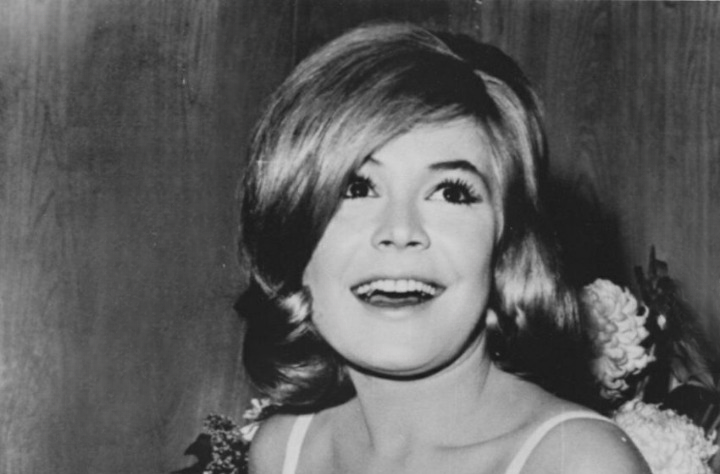Sandra Dee became one of Hollywood’s most cherished faces during the late 1950s and early 1960s—a symbol of innocence, charm, and youth. With her delicate features, gentle voice, and effortless sweetness, she perfectly embodied the “girl next door” ideal that studios loved to celebrate. Born Alexandra Zuck in 1942 in Bayonne, New Jersey, she entered show business at a young age and quickly rose to fame, becoming a household name before she was old enough to fully understand the world she was stepping into.
Her breakthrough roles in films like Gidget (1959) and A Summer Place (1959) solidified her image as a wholesome, carefree teen heroine. Audiences adored her purity and sincerity, while parents saw her as a safe, spotless role model. She became Hollywood’s golden girl—untouched, untroubled, and perfectly polished for the public eye. But the truth of Sandra Dee’s life was far more tangled and fragile than the sunny characters she portrayed onscreen.
Behind the scenes, the young actress faced an enormous amount of pressure. Hollywood demanded perfection from her, and her management worked tirelessly to reinforce the illusion of innocence that made her so marketable. This strict control left little room for her to grow, experiment, or simply be herself. As she matured, the disconnect between who she truly was and the version of her that the industry promoted became increasingly painful.
While audiences saw a smiling, obedient teen star, Sandra battled privately, silently trying to reconcile her personal aspirations with the expectations placed upon her. The tension between her inner life and her public persona created a hidden emotional struggle that would follow her throughout her career. She longed to explore deeper, more complex roles, but Hollywood insisted on freezing her in time—as the sweet, wide-eyed ingénue audiences had fallen in love with.
Film studios carefully curated her roles to maintain this image. Instead of allowing her to branch out into mature, challenging parts, they repeatedly assigned her characters that reinforced purity and innocence. As a result, Sandra often felt trapped in a version of herself that no longer reflected the woman she was becoming. This disconnect left her feeling misunderstood, frustrated, and unseen by the very industry that had shaped her.
Yet despite those limitations, Sandra Dee brought an unmistakable sincerity to every role she played. Even when the characters were simple, her performances radiated genuine emotion and warmth. She had a natural ability to capture vulnerability and hope, which made her unforgettable to audiences. Her talent was real—even if Hollywood didn’t always allow her to show its full range.
But as her fame grew, so did the difficulties in her personal life. Sandra struggled with self-esteem and significant health challenges, many of which were worsened by the pressures of maintaining an impossible image. Fame magnified her insecurities rather than easing them, leaving her searching for stability and peace in a world that demanded constant perfection.
Those close to her often spoke of her intelligence, sensitivity, and perceptiveness—qualities that didn’t always align with the simplistic roles she was given. Her depth as a person contrasted sharply with the flat, innocent characters she was known for, creating an internal conflict that she carried quietly. She was far more complex than the public ever realized, but Hollywood rarely allowed her to reveal that complexity.
Over time, the disconnect between Sandra Dee’s real identity and her carefully crafted persona took a toll on her mental and emotional well-being. She became an example of how fame can be both a blessing and a burden, particularly for a young star molded into something she never chose to be. Her story serves as an intimate reminder of the human cost behind Hollywood glamour.
Despite everything, Sandra Dee left a lasting legacy. Her performances remain timeless, touching new generations who discover her films and admire her genuine charm. But what gives her story greater meaning today is the depth behind her smile—the struggles she faced, the expectations she endured, and the resilience she carried with her.
Sandra Dee will always be remembered as the sweet, wholesome girl next door. Yet her life also reveals the hidden battles that exist behind the brightest spotlights. She stands as both a beloved cultural icon and a poignant reminder of the pressures placed on young stars who are asked to give the world an idealized version of themselves.
Her journey—filled with beauty, pain, talent, and quiet strength—reminds us that even the most perfect Hollywood images can conceal the complexities of a real, vulnerable human being. And perhaps that humanity is what makes her legacy endure more strongly than any flawless performance ever could.
